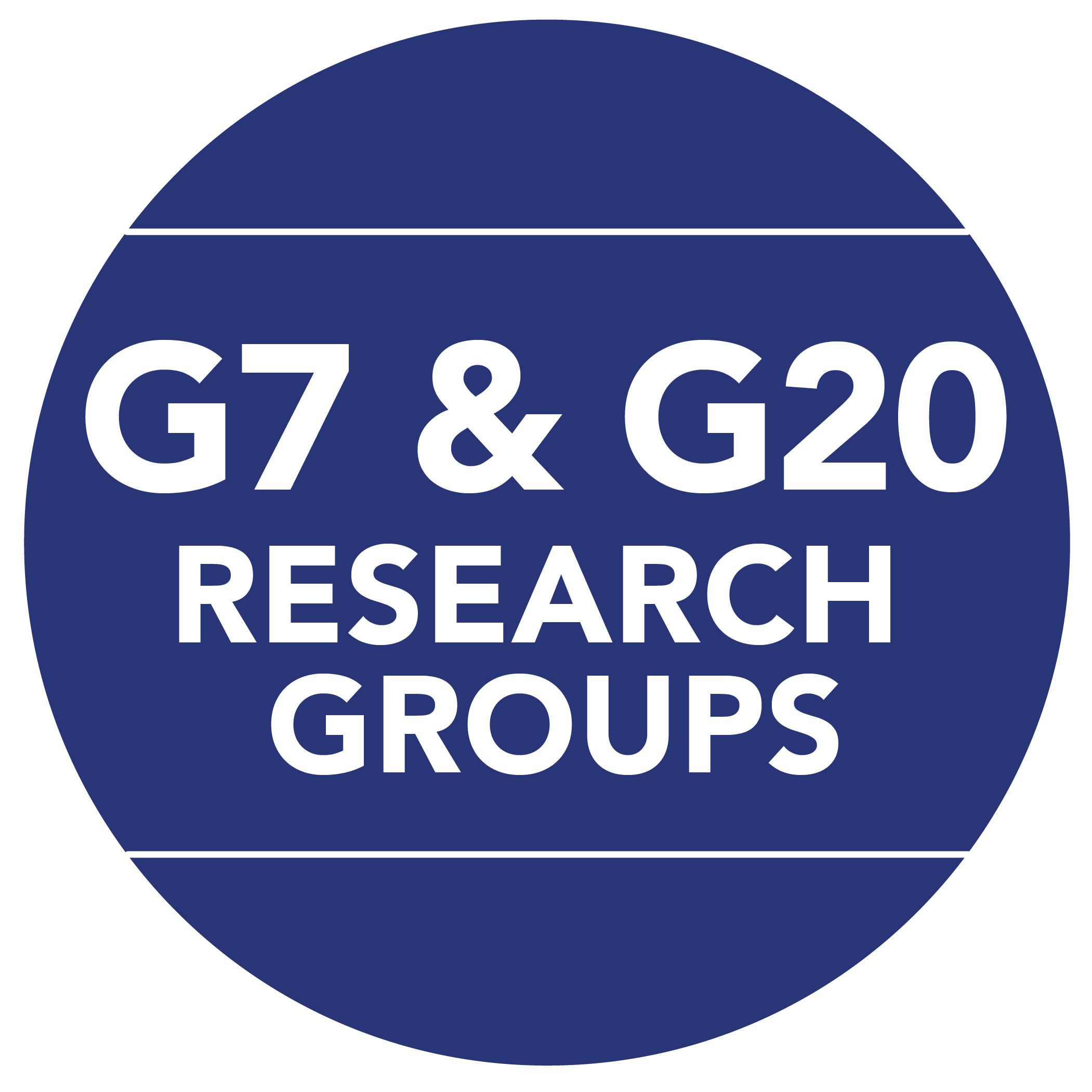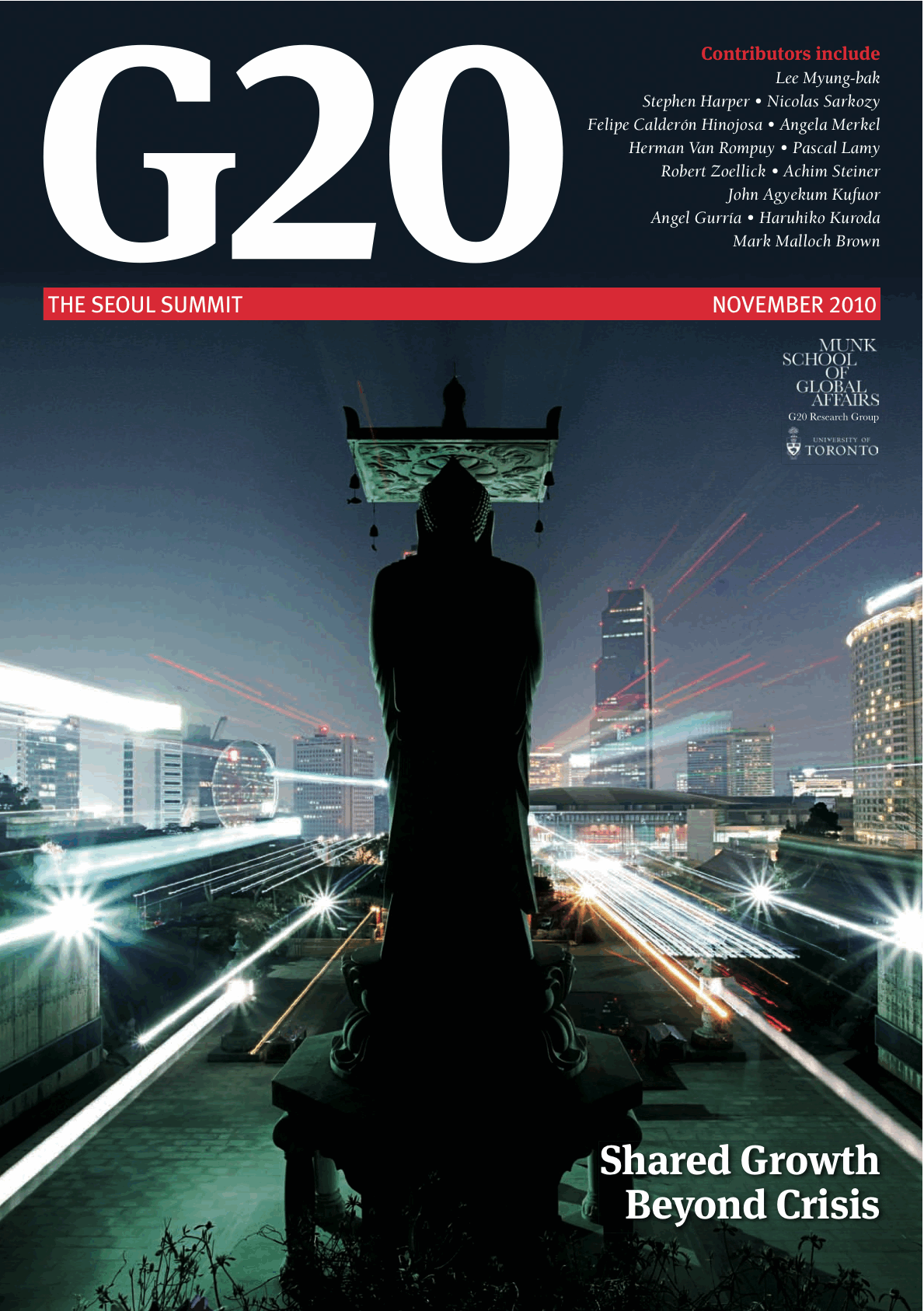

 |
 |
|

The role of the IFC
By Lars Thunell, executive vice-president and CEO, IFC
The IFC works with partners such as the World Bank Group to finance private
investment in emerging markets, creating opportunity where it is needed most
To download a low-resolution pdf, click here. (Be patient! It's 50 MB.)
The G20 has made an excellent choice in selecting Seoul as the site of its November summit.
Growing from one of the world’s poorest countries into an industrialised economy within 50 years, Korea has much to share with the world about what works in development. The International Finance Corporation (IFC), a member of the World Bank Group and the world’s largest global development finance institution focused on the private sector, welcomes Korea’s selection as the first non-G8 country to host the G20 summit. This is an important symbol of the growing influence and participation of developing countries in the global economy.
Much of the discussion in Seoul will centre on the regulation and monitoring of financial institutions in an era of globalisation. But also of particular importance is Korea’s decision to help the G20 focus on development — specifically, in finding viable new approaches that complement, rather than duplicate, existing efforts to achieve the Millennium Development Goals (MDGs). It is especially important that the world support broad-based economic growth policies that can bring widespread social gains. Korea itself is a good example: in 1961 its economy was comparable to many in sub-Saharan Africa, but over the next four decades it was one of the world’s fastest-growing economies and today is a member of the Organisation for Economic Co-operation and Development with low rates of unemployment, inequality and extreme poverty.
Working with its partners in the World Bank Group, IFC brings more than 53 years’ experience in financing private investment that delivers services, creates jobs and raises incomes in emerging markets. In its most recent fiscal year it committed a record $18 billion. Its financing is increasingly blended with advisory services that add value to its clients and to the poor in support of its overarching goal: to create opportunity where it is needed most.
Today, however, the world faces the especially challenging conditions of the ‘new normal’. High budget deficits and unemployment in G8 countries limit public sector resources, making it ever more important to attract new private resources in support of global development objectives.
This has been IFC’s focus since the onset of the global financial crisis in September 2008, when it launched a $3 billion bank capitalisation fund with its Japanese partners.
Working closely with G20 members, it then developed a new trade finance initiative. Announced at the April 2009 London G20 Summit, this initiative has since helped generate more than $6 billion in trade. IFC is now also helping carry out the G20’s Global Agriculture and Food Security Program launched at the September 2009 Pittsburgh Summit. It supports the G20’s financial inclusion agenda in developing new models of financing for small and medium enterprises (SMEs). Strengthening the private sector’s role in addressing climate change also remains one of its highest priorities.
A common theme runs through all of these initiatives: the use of innovative approaches to attract the new private capital needed to complement public sector resources and achieve development objectives, especially in the world’s poorest countries — those supported by the World Bank’s International Development Association (IDA).
The $3 billion IFC Capitalization Fund invests in developing country banks that are systemic for their local economies, such as Bank South Pacific in Papua New Guinea, Banco Continental in Paraguay and others. It is managed by IFC Asset Management Company, a wholly owned subsidiary that serves as a fund management platform to raise money from sovereign funds, pension funds and other institutional investors. The fund’s investments help emerging market banks meet their capital requirements under the Basel III framework.
Trade is also a cornerstone of development. But in 2009 global trade flows contracted by an estimated 12 per cent, threatening to erode much of the progress made in emerging markets over the past decade unless dynamic new solutions were found.
Endorsed in the London Summit, the Global Trade Liquidity Program (GTLP) is a unique public-private partnership linking governments, development finance institutions and commercial banks. It pools $1.7 billion in direct committed funds from Canada, the Netherlands, the Swedish International Development Cooperation Agency, the Department for International Development and the CDC Group of the United Kingdom, the Saudi Fund for Development, the African Development Bank, the OPEC Fund for International Development, and another $1.5 billion in parallel cofinancing from the Japan Bank for International Cooperation. Africa is the primary target region. More than 80 per cent of GTLP’s financing benefits SMEs. One such trade finance facility is with the Standard Bank of South Africa for agribusiness exports. When many foreign banks were cutting back on their African trade lines, GTLP’s support to the bank’s local affiliate enabled Nigerian cocoa producers to purchase $15 million of beans for export to Europe.
More than 1 billion people face chronic hunger today. Meeting the MDGs to halve poverty and hunger by 2015 requires more investment to help developing countries boost agricultural productivity, improve access to food markets, decrease vulnerability to agricultural risks, and create better and more sustainable rural livelihoods.
The G8 and G20 are leading new efforts to advance food security and promote agriculture development. As part of this initiative, donors have invested in the Global Agriculture and Food Security Program. IFC has received pledges of American and Canadian support for a private sector facility to provide equity and loans for poorly financed small and medium-size agribusinesses that can work with smallholder farmers and bring them into local and global value chains.
SMEs are an essential force for job creation and poverty reduction in poorer countries, but they are often unable to access the commercial bank financing they need to grow. At the Pittsburgh Summit, G20 leaders vowed to scale up successful models of SME financing, mandating IFC to work with others in the new Financial Inclusion Experts Group to assess the best existing SME finance mechanisms and propose new solutions.
There is a nearly $1 trillion financing gap for formal-sector SMEs in emerging markets. It is a high-impact market that local banks can enter profitably when given effective external support. IFC is thus pleased to be one of the judges of the G20 SME Finance Challenge, a global call for proposals on using public funds to attract private finance on a sustainable and scalable basis. Winners will be announced in Seoul. IFC is considering additional, larger-scale responses that can help this critical G20 agenda item in other ways as well.
IFC is approaching these challenges in partnership with the G20, providing integrated investment and advisory services, as well as a proactive effort to document and share what it learns. With a combined global and local presence, and strong links with business, government and civil society, it is doing its part to increase the private sector’s role in today’s great challenges of development.
|
This Information System is provided by the University of Toronto Library |
All contents copyright © 2024. University of Toronto unless otherwise stated. All rights reserved.